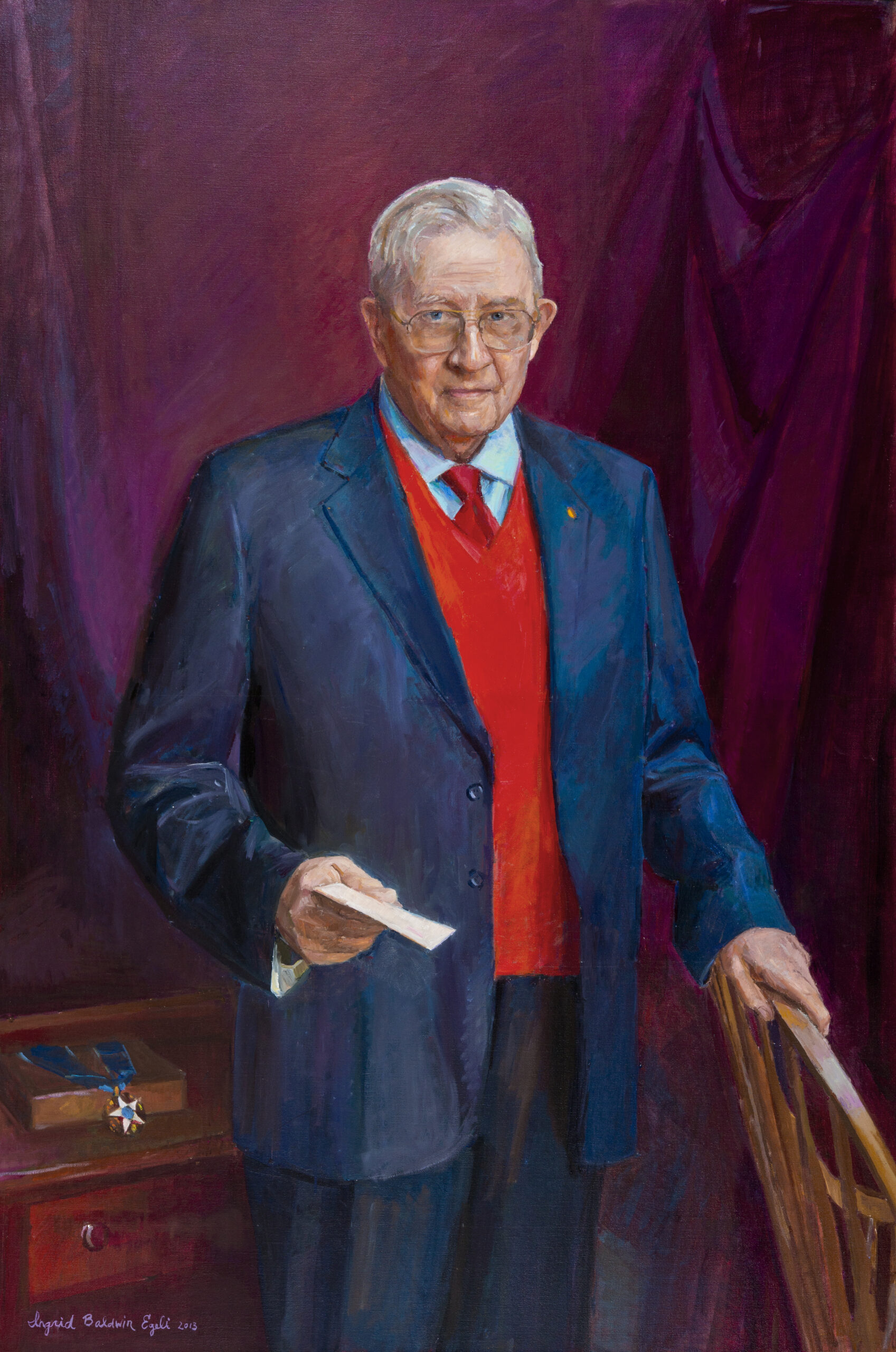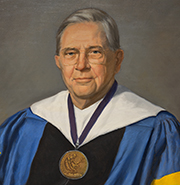Donald Ainslie Henderson

Donald Ainslie Henderson
- Artist:
- Ingrid Baldwin Egeli
- Date:
- 2013
- Medium:
- Oil on canvas
- Dimensions:
- 53.5 x 35.5 in.
Donald Ainslie Henderson
1928-2016
Henderson, an epidemiologist and dean at the Johns Hopkins school of public health, was born in Lakewood, Ohio. He received his A.B. in chemistry from Oberlin College in 1950 and his M.D. from the University of Rochester School of Medicine in 1954. From 1954 to 1959, Henderson served both an internship and a residency in medicine at Mary Imogene Bassett Hospital in Cooperstown, New York. Between his internship and residency he worked in the epidemiology intelligence service of the Communicable Disease Center, now called the Centers for Disease Control (CDC).
In 1960, Henderson received an M.P.H. from the Johns Hopkins University School of Hygiene and Public Health, and embarked on a career in public health epidemiology with various appointments at the CDC. From 1966 to 1977, Henderson directed the World Health Organization’s (WHO) successful effort to eradicate smallpox and also was instrumental in initiating WHO’s poliomyelitis eradication program.
Henderson returned to Johns Hopkins in 1977 to become dean of the School of Hygiene and Public Health, later named the Bloomberg School of Public Health, and professor of epidemiology and international health. Under Henderson’s leadership, the school’s faculty established thirteen new centers and institutes, many of which were the first of their kind and continue to lead their respective fields. He also helped make the school and Johns Hopkins a national leader in addressing the emerging HIV/AIDS epidemic by establishing a university-wide research center. By 1990, when he retired, the school’s budget had more than quadrupled and enrollment had grown by forty percent.
Henderson was then appointed associate director for the life sciences division of the United States President’s Office of Science and Technology Policy. From 1993 to 1995, he served as deputy assistant secretary for health and senior science advisor for the Department of Health and Human Services. After the September 11, 2001 terrorist attacks and subsequent anthrax mailings, he served under President George W. Bush as director of the Office of Public Health Preparedness, a new unit to combat bioterrorism.
Henderson was also a resident scholar at the Center for Biosecurity of the University of Pittsburgh Medical Center. The center was originally founded in 1998 as the Center for Civilian Biodefense Studies at the Johns Hopkins Medical Institutions, with Henderson as its director.
He received numerous awards throughout his career, including the Presidential Medal of Freedom, the nation’s highest civilian honor, in 2002, the National Medal of Science, the Lasker Award, and the National Academy of Sciences Public Welfare Medal. Henderson co-authored Smallpox and Its Eradication and also published more than eighty articles dealing primarily with smallpox eradication, epidemiology, and immunization.
Additional Portrait(s) of Donald Ainslie Henderson
"*" indicates required fields

